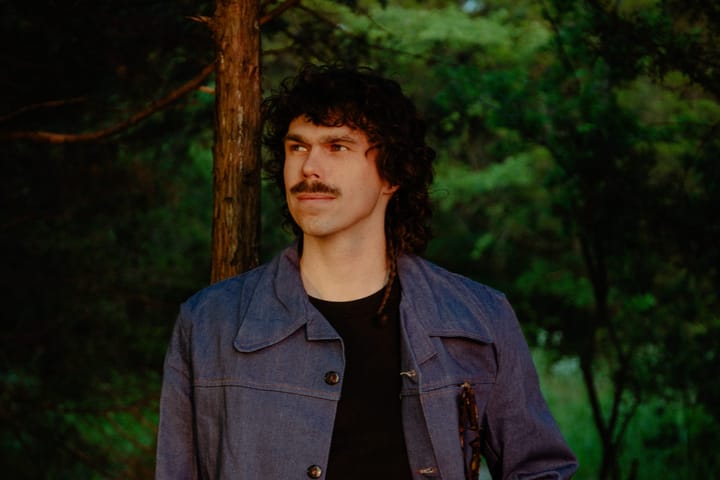Brandi Carlile and Elton John -- When We Talk to Angels
Erin Lyndal Martin shares the importance of When We Talk to Angels, the triumphant collaboration between Elton John and Brandi Carlile.

When When We Talk to Angels, a collaboration between Elton John and Brandi Carlile was announced, fans were mostly curious. And not just because John claimed to have retired last year and not even because he’s now 78 and has (perhaps temporarily) lost most of his vision. Rather, fans tried to imagine his piano-based 70’s rock and sentimental ballads comingled with Carlile’s own shapeshifting voice that rasps and lilts over folksy, bluesy music much of the time. Ultimately, the rapport between the two musicians ensured each met the challenge head-on, and with the help of savvy songwriting and production, the collaboration is a big success. Carlile herself is still the most surprised of all, given her lifelong Elton John fandom., these queer icons from different generations tapped into what makes their own music special, as well as each other’s.
The new record has ten tracks, many of which take the form of big 70’s arena rock,
thickly produced with a lot of sonic layers. Through those retro vibes, the artists can revisit their own icons while making music to bring hope to LGBTQIA+ youth of the present. One hero is singer-songwriter Laura Nyro, a favorite of John’s, who is honored in album opener “The Rose of Laura Nyro.” The song has huge energy and lots of warm fuzzies—you can feel the love tonight, and it’s spiked with some
psychedelic flourishes before landing into rock anthem territory. In addition to Laura Nyro, the lyrics reference Virginia Woolf and the singers repeat “Eli’s coming” throughout. The ode continues into the second track, “Little Richard’s Bible.” Both John and Carlile look up to the “Tutti Frutti” singer but hate how he was ultimately forced to dress and act more “straight.” Carlile sings those on the next track, the similarly upbeat “Swing for the Fences.” As with the preceding tracks, the 70’s flavor is strong with hefty layers and big sounds. “Be a heartbeat cannon in a quiet spot / a white picket fence in a parking lot,” Carlile sings, the lyrics appealing to LGBTQIA+ people of any generation.
The propulsive rock energy is a lot of fun, and parents and children will certainly
bond over this record. In the slower songs, though, we also find the gorgeous
tenderness that John and Carlile have in common, especially as they face the fact that they are now aging parents themselves. “Never Too Late,” the collaboration that started this project, is both soaring and intimate. The two sing in unison, and it’s clear that in this song they have found some common sacred ground. The next tearjerker is Carlile’s “You Without Me,” an acoustic song both light and tugging, but it’s slotted into the album in the perfect place. The album closes with “When This Old World is Done With Me,” a song Taupin penned while considering John’s mortality. John wept while recording it, and the pathos is palpable: he’s grateful for an amazing life but doesn’t want to leave his husband and children. How can we fathom that when he’s here, sounding as good as ever, pushing himself to make a new record alongside his number-one fan? It’s clear that John and Carlile have been angels for one another, and for us too.




